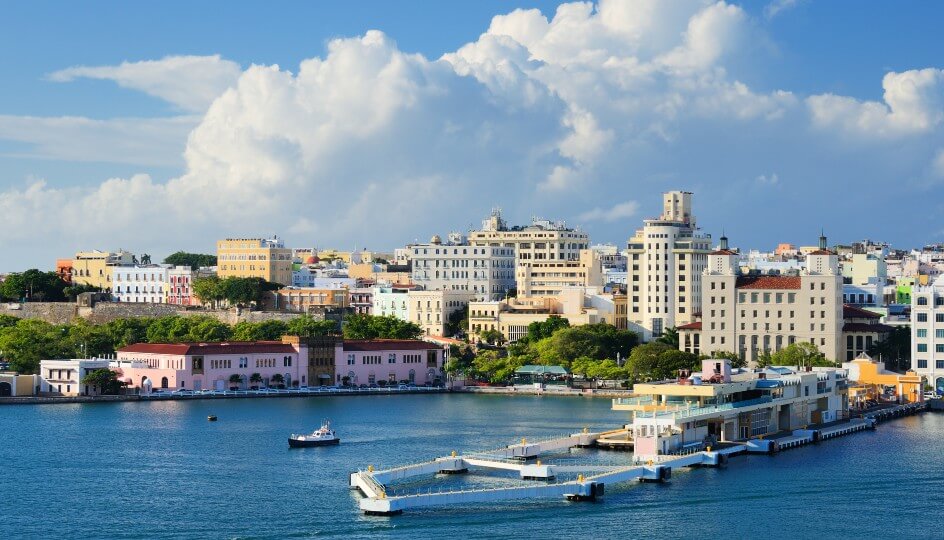Doing business in Puerto Rico: A secure and tax-efficient US jurisdiction like no other

The jurisdiction of Puerto Rico is something of a hybrid. From afar, it looks very much like the 51st state of the USA. Closer up, you discover it has the fiscal independence of a separate jurisdiction. Incoming corporate and individual investors can benefit from an attractive mix of strong US legal safeguards, a highly skilled workforce and exceptionally low taxes.
Puerto Rico is a US territory – not a full-blown state – but you could be forgiven for not realising.
The island’s 3.3 million people are US citizens with US passports. They earn and spend US dollars. Their head of state sits in the White House. They take their disputes through the US federal court system. Investors benefit from all the same legal protections and remedies as the US mainland, including those governing intellectual property rights.
Incorporation also bears similarities to the processes followed in the US. Puerto Rico’s General Corporation Law is closely modelled on Delaware’s equivalent. The interplay of local and US corporate entities is smooth and simple.
‘No taxation without representation!’
Puerto Rican residents have no vote in US presidential elections. But their territory status also means the island retains the right to set its own taxes and manage its own public finances.
Keen to attract long-term investment and employment, Puerto Rico makes aggressive use of its fiscal independence to offer generous tax incentives to certain categories of inbound investor.
Generous standard benefits
Before 2020, two separate tax laws incentivised two key groups: Act 20 provided for exporters of international services; Act 22 covered wealthy individuals prepared to become ‘bona fide’ island residents.
Since 1 January 2020, all incentives have been streamlined and extended by Act 60-2019. A single legal and administrative framework, known simply as the Incentives Code, makes Puerto Rico a prime investment location for three particular types of investor:
- exporters of international services,
- innovation-led manufacturers, and
- high-net-worth individuals.
To benefit from the Code, a company or individual must first apply for a ‘tax exemption decree’ from the Department of Economic Development and Commerce. For those who meet the eligibility criteria, standard benefits include:
- a fixed 4% income tax rate
- distributed profits and dividends 100% exempt from income tax
- 75% exemption from property taxes
- 50% exemption from municipal taxes
- tax credits on R&D expenditure up to 50%
- standard decree terms of 15 years, easily extendable for 15 more.
Exporters of international services
To be eligible for an export services decree, the business must be a pure export operation (with no local sales), have projected or real business volume of at least US$3m per annum and employ at least one local resident.
The 4% income tax rate applies, as does the 100% income tax exemption for dividends and profits distributed to business owners. There aren’t any local property taxes to pay for the first five years.
An extensive catalogue of activities make a good ‘fit’ for the package of incentives under an export services decree: advertising and public relations; accounting and tax support; investment banking; engineering design; architectural services; shared service centres; physical product distribution operations; cloud computing and blockchain services; and the provision of international consulting services in any number of fields.
Innovation-led manufacturers
Low rates of income tax and generous R&D allowances make Puerto Rico an exceptional location for innovation-based businesses in sectors like pharmaceuticals, aerospace, software development, scientific research and renewable energy. In addition, royalty receipts are taxed at just 12% (creditable against the 4%) and many sales and use taxes on raw materials and machinery are waived.
Recipients of an industrial incentives decree must employ at least three local residents. But taxes are only part of Puerto Rico’s attractiveness to businesses like Microsoft and Lufthansa. The technical education system in Puerto Rico is the envy of most US states: it ranks 6th in the world for the number of science, technology, engineering and mathematics (STEM) graduates it produces. More than 25,000 new STEM degrees are awarded each year and STEM subjects account for 60% of all university graduates in Puerto Rico.
High-net-worth individuals
For wealthy individuals who become ‘bona fide’ residents and relocate to Puerto Rico, the tax benefits can be even more generous. Passive income (interests and dividends) from any source, as well as all income from local sources, is entirely exempt from taxation.
Capital gains accrued after residency has begun are also fully exempt from tax, with gains accrued beforehand taxed at just 5%, as long as they are realised within ten years of arrival.
To qualify as ‘bona fide’, residents must:
- spend at least 183 days a year on the island
- have no other tax domicile but Puerto Rico
- have no closer connection to either the US or a foreign country
- possess a local bank account
- purchase a residence within two years
- make a US$10,000 contribution to local charities.
Residency must begin before 31 December 2035 and they should not previously have been a resident between 17 January 2006 and 17 January 2012.
And beyond
Versions of the standard incentives package are also available to international financial and insurance businesses wanting to set up in Puerto Rico. Similarly, individual entrepreneurs and high-value professionals (such as doctors, researchers and scientists) can benefit from their own distinct set of benefits and exemptions. Private equity funds, livestock and farm businesses and renewable and sustainable energy projects are all incentivised by their own generous provisions in the Code.
Talk to us
For incoming investors, the streamlined incentives code has done much to demystify this attractive jurisdiction. To take full advantage of all that Puerto Rico has to offer still requires investors to navigate the tax decree system as well as an inevitable array of unfamiliar jurisdictional differences and compliance demands.
TMF Group’s unique blend of business support services and expert professionals in Puerto Rico, working closely with our local partners at Edge Legal, are ready to guide you swiftly and efficiently.
If you would like to talk to us about what Puerto Rico has to offer you and your business, make an enquiry today.





